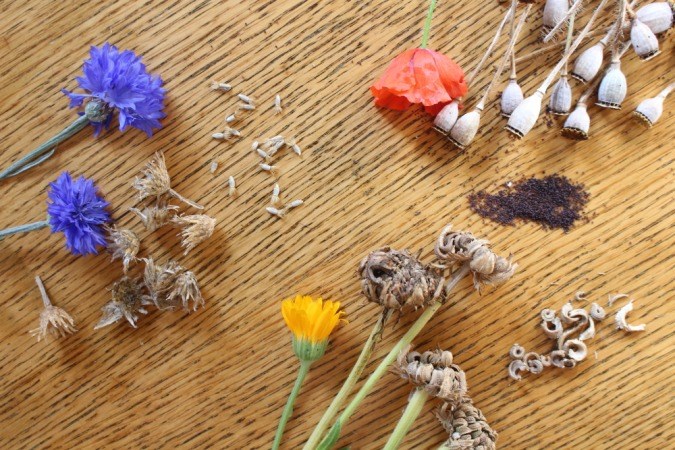��
The ancient practice of saving seeds has, in recent years, become a feasible and, in some cases, encouraged practice. There is a science to saving seeds; one that requires patience, vigilance and dedication but the rewards and satisfaction outweigh the labour costs.
There is far more to saving seed than going out into the garden and selecting one or two plants from each vegetable variety you grow to serve as seed producers. The ancient people who began to save seed, observed the plants and paid special attention to how the plants grew, when they flowered and the quality and quantity of fruit produced. Seed was selected from plants that showed natural disease resistance, high yields, good to excellent quality and growth that suited the growing environment. The home gardener can take a similar approach. Plants that show these qualities have the potential to be excellent seed sources.
Although the ancient seed savers had no knowledge of plant biology, the home gardener will benefit from a little of this knowledge. The concept that is most important to know is pollination. Pollination differs with each plant family. Some require wind while others are mainly pollinated by insects and still others use a combination of the two.
Pollination occurs when the pollen from either male flowers or male flower parts (called stamens) is transferred to female flowers or female flower parts (called pistils). The pollen may be from the flower of a related plant or it may be from a flower of a plant in the same family. For example, cucumbers and zucchini are part of the squash family. They have monoecious flowers, which means they have both male and female flowers on the same plant.
Some plants are dioecious which have male and female flowers on different plants. Some of the most common plants that come to mind are poplar and ash trees. Dioecious plants are extremely important as there might be strong preferences to one sex or another due to allergies or other landscape concerns like poplar fuzz. Still other plants contain perfect flowers, which contain both the male and female parts in each flower itself. For example, dwarf sour cherries have perfect flowers so there is no cross-pollination with another cherry to produce fruit, which means that gardeners will require only one plant for fruit production.��
There is one thing that the ancient seed gatherers did not have to contend with that modern seed gathers do: hybridization. Many plant varieties are hybrids meaning the flowers of two related species have been cross-pollinated to produce a new flower or vegetable variety. The seed from hybrid varieties will likely be sterile, however, if it does germinate, it is unlikely that the flowers or vegetables will be like the parent plant. In fact, the plants may be sterile and not produce flowers at all.
We have covered the basics of pollination but there is still more to know about seed saving. Pollination is the key to either having fruit or not, but it is also the key to whether or not the fruit will be like the fruit of the parents. When a seed is described as “coming true,” it will grow, flower, and produce fruit that looks exactly like the parent plants. Seed that does not “come true” will often be seed that has two different parents from the same plant family. For example, green beans will cross-pollinate with yellow beans resulting in beans that can be either green or yellow.
When planting a garden to use for seed production, remember it is important to plant single varieties of those plants you plan to save seed from. Planting only non-hybrid green beans will mean that you will have green bean seeds that will produce true green beans the following year. Keep in mind that if your neighbour is growing vegetables, there can also be cross-pollination between their varieties of vegetables and yours. Maybe you can go together and each grow different types of vegetables but then share the produce. You’ll have double the garden space, more vegetables and new friends for life.
Hanbidge is the Lead Horticulturist with Orchid Horticulture. Find us at ; by phone at 306-931-4769; by email at [email protected]; on facebook @orchidhort and on instagram at #orchidhort.
��
��
��




